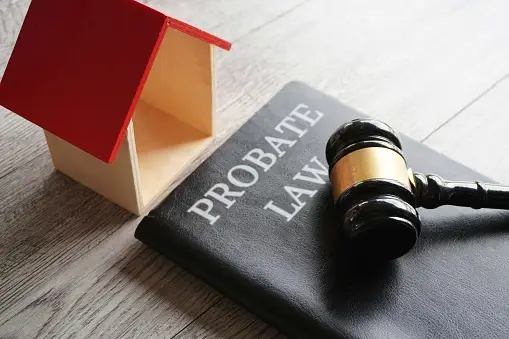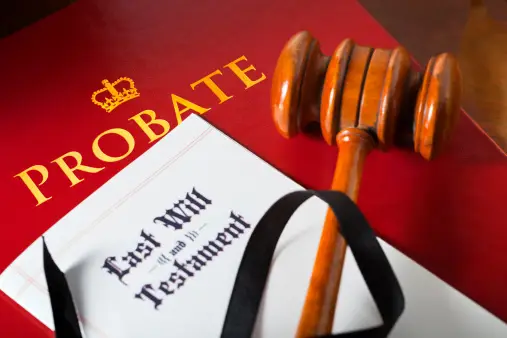Understanding the Benefits of Trusts in Estate Planning
Trusts are powerful tools in estate planning, offering numerous benefits that can simplify the management and distribution of assets. By establishing a trust, individuals can ensure that their assets are managed according to their wishes, providing for loved ones and minimizing potential disputes among heirs.
For instance, revocable living trusts allow individuals to retain control over their assets during their lifetime while facilitating a seamless transfer upon death, avoiding the lengthy probate process. Additionally, certain types of trusts can provide tax benefits and protect assets from creditors, making them an attractive option for many families.
Probate Process: What to Expect and How to Navigate It
The probate process can be daunting for many, but understanding its steps can alleviate some of the stress associated with settling an estate. Probate involves validating a deceased person's will, inventorying their assets, and ensuring debts and taxes are paid before distributing the remaining assets to heirs.
Typically, the process can take several months to over a year, depending on the complexity of the estate. Engaging a knowledgeable attorney can help navigate the legal requirements and ensure that all necessary filings are completed promptly, ultimately facilitating a smoother transition for the family left behind.
How to Choose the Right Executor for Your Estate
Choosing an executor is a critical decision in estate planning, as this individual will be responsible for managing your estate after your passing. An ideal executor should be trustworthy, organized, and capable of handling financial matters, as they will oversee the probate process and ensure your wishes are carried out.
For example, many individuals opt for a family member or close friend, but it can also be beneficial to consider appointing a professional, such as an attorney or financial advisor, especially for larger or more complex estates. This choice can help ensure that all legal and financial responsibilities are handled efficiently and in accordance with your wishes.
Common Estate Planning Mistakes and How to Avoid Them
Many individuals make critical mistakes in their estate planning that can lead to complications for their heirs. Common pitfalls include failing to update wills and trusts after major life events, such as marriage, divorce, or the birth of a child, which can result in unintended distributions of assets.
Additionally, neglecting to consider tax implications or not communicating plans with family members can lead to disputes and confusion. By regularly reviewing and updating estate plans and involving family discussions, individuals can mitigate these risks and ensure a smoother transition of their legacy.
Understanding the Benefits of Trusts in Estate Planning
Trusts are powerful tools in estate planning, offering numerous benefits that can simplify the management and distribution of assets. By establishing a trust, individuals can ensure that their assets are managed according to their wishes, providing for loved ones and minimizing potential disputes among heirs.
For instance, revocable living trusts allow individuals to retain control over their assets during their lifetime while facilitating a seamless transfer upon death, avoiding the lengthy probate process. Additionally, certain types of trusts can provide tax benefits and protect assets from creditors, making them an attractive option for many families.
Probate Process: What to Expect and How to Navigate It
The probate process can be daunting for many, but understanding its steps can alleviate some of the stress associated with settling an estate. Probate involves validating a deceased person's will, inventorying their assets, and ensuring debts and taxes are paid before distributing the remaining assets to heirs.
Typically, the process can take several months to over a year, depending on the complexity of the estate. Engaging a knowledgeable attorney can help navigate the legal requirements and ensure that all necessary filings are completed promptly, ultimately facilitating a smoother transition for the family left behind.
How to Choose the Right Executor for Your Estate
Choosing an executor is a critical decision in estate planning, as this individual will be responsible for managing your estate after your passing. An ideal executor should be trustworthy, organized, and capable of handling financial matters, as they will oversee the probate process and ensure your wishes are carried out.
For example, many individuals opt for a family member or close friend, but it can also be beneficial to consider appointing a professional, such as an attorney or financial advisor, especially for larger or more complex estates. This choice can help ensure that all legal and financial responsibilities are handled efficiently and in accordance with your wishes.
Common Estate Planning Mistakes and How to Avoid Them
Many individuals make critical mistakes in their estate planning that can lead to complications for their heirs. Common pitfalls include failing to update wills and trusts after major life events, such as marriage, divorce, or the birth of a child, which can result in unintended distributions of assets.
Additionally, neglecting to consider tax implications or not communicating plans with family members can lead to disputes and confusion. By regularly reviewing and updating estate plans and involving family discussions, individuals can mitigate these risks and ensure a smoother transition of their legacy.










